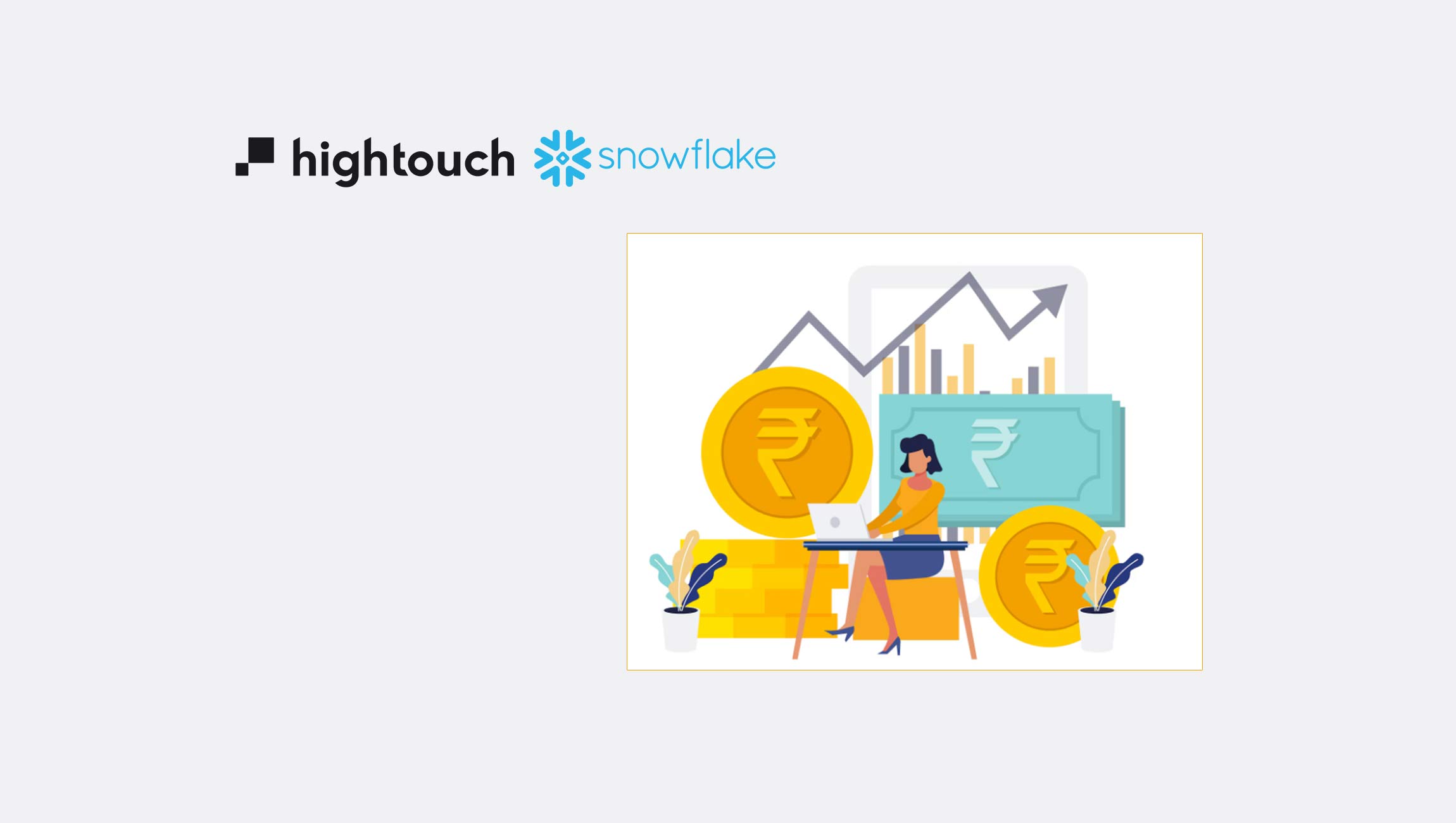Žilvinas Lešinskas, VP of Product at Omnisend chats about the future of eCommerce marketing in this MarTech Series interview:
_______
Tell us about yourself and your role at Omnisend.
I’ve been solving puzzles for as long as I can remember. As a child, I was drawn to math problems and big “why” questions – anything that helped me decode how the world works. That curiosity led me through an early career in advertising, where I worked as a creative director before pivoting into product management. I made the switch because I wanted to compete on a global scale, where the stakes are higher, the feedback loops are real, and the problems are more multidimensional.
Today, I’m the VP of Product at Omnisend, a bootstrapped marketing automation platform used by 150,000 ecommerce brands globally. I lead 15 cross-functional teams, and a big part of my role is selecting the right battles: choosing what problems to solve, what to postpone, and how to maximize customer impact with limited resources.
To me, product work is creative work. It’s about distilling clarity from noise – taking in messy data, signals from customers, and market shifts, and shaping a narrative that informs decisions. My background in marketing creative taught me how to reverse-engineer intent, which turns out to be a valuable skill in product. Data can tell you what happened, but it takes creativity to ask why it happened and what should come next.
Being bootstrapped makes the work even more meaningful. We don’t answer to venture capital – we answer to our customers. That keeps us grounded, focused, and relentlessly curious.
We would love the brief details of Omnisend’s new AI powered suite: how is it an enabler for eCommerce marketing teams?
The first wave of our AI-powered suite is designed to solve a very practical problem: ecommerce marketers, especially those wearing multiple hats, simply don’t have the time or resources to build high-performing campaigns from scratch. Our new tools help reduce the time it takes to create, personalize, and optimize email campaigns from hours to minutes. Whether it’s subject line generation, product content, or selecting the right audiences, we’re helping marketers start strong instead of starting from a blank page.
But that’s just the beginning.
Our broader vision is to reinvent the way marketing gets done, moving from a tool-based interface to a holistic AI-native experience. In that future, marketers won’t need to learn where everything lives in Omnisend or manually piece together complex workflows. They’ll simply describe what they want to achieve – retain more customers, boost revenue from a product drop, launch an automation – and the system will handle the heavy lifting: assembling assets, setting logic, and recommending the optimal approach.
But beyond execution, AI will guide our focus. Omnisend will surface brand-specific insights – rooted in customer behavior, store performance, and industry patterns – to spotlight untapped opportunities. Instead of just asking, “How do I do this?” marketers can ask, “What should I do next?” and get strategic, actionable guidance tailored to their business.
We see AI not as a bolt-on feature, but as a new paradigm.
What’s trending in eCommerce marketing today and can you talk about the impact AI is having for eCommerce marketing teams?
A key trend is the shift from channel-based execution to outcome-based orchestration. Marketers are moving away from siloed tactics – email, SMS, ads – and focusing instead on driving lifecycle results like retention or repeat purchases.
What’s powerful is that even small, resource-constrained teams are benefiting. Where they once relied on guesswork or templates, they now use AI to assist in building campaigns, personalize messaging, and get strategic recommendations without deep technical expertise.
We’re also seeing a big push for personalization without added complexity. Omnisend AI makes that possible at scale. It automates the nuance marketers want, without requiring them to master logic trees or data models.
In short, AI is shrinking the gap between intention and execution, making smart marketing more accessible than ever.
Marketing Technology News: MarTech Interview with Lee McCance, Chief Product Officer @ Adverity
How are today’s leading eCommerce brands using SMS marketing more creatively to drive user growth and impact?
Leading ecommerce brands are treating SMS as more than a sales tool. They’re using it to build relationships: sending early access to loyal customers, real-time restock alerts, and personalized messages that align with each customer’s journey. The key is relevance and timing, not just volume.
What we’re seeing is a shift from one-size-fits-all blasts to more purposeful SMS touchpoints. Short, timely, valuable messages that feel personal – those are driving the best results.
Still, one thing that holds some brands back is pricing. That’s why at Omnisend, we’re rolling out a more flexible and transparent SMS pricing model. Starting this quarter, marketers will benefit from lower send rates, volume-based tiers, and easier access to try out the channel. The goal is to make SMS more accessible, no matter your size.
What eCommerce trends in terms of eCommerce tech, martech, adtech are reshaping the industry today?
One of the strongest trends is tech stack consolidation. Marketers want fewer tools that do more, without the overhead of complex integrations. But there’s a catch: some tech companies are likely overcorrecting by bundling CRM, CDP, and messaging into a heavy suite that mid-sized ecommerce teams neither need nor want to pay for.
Unification matters but there’s a clear upper limit to how much should be consolidated. Most growing brands aren’t looking for an enterprise system – they’re looking for speed, clarity, and control. The best tools stay focused on outcomes, not feature checklists.
At the same time, we’re seeing increased investment in owned channels like email and SMS, fueled by rising ad costs and tighter data privacy regulations. On the adtech side, activating first-party data has become essential – using what you already know about your customers to fuel more efficient acquisition and retargeting.
And across the board, AI is changing execution speed. It is not replacing marketers, but helping them iterate faster and make smarter decisions with less friction.
What should eCommerce marketing teams be shifting focus towards as advanced technologies change the game for providers and end users?
Marketing teams should shift their focus from managing tools to maximizing outcomes. As tech becomes more capable, the real value lies in how well teams can direct it: asking better questions, setting clearer goals, and evaluating impact, not just outputs.
Teams should invest in understanding their customers: who they are, where the friction points lie, and what keeps them coming back. With AI and automation handling more execution, human attention should move toward insight and strategy.
Also, agility beats complexity. The brands that win are the ones who adapt fast, learn quickly, and use the tech to serve the customer, not the other way around.
Can you highlight some of the most interesting eCommerce workflows from leading eCommerce brands that deserve a shout out here?
One of the few standouts is pairing product drop waitlists with SMS alerts – shoppers opt in and receive real-time notifications when items go live, creating urgency without relying on discounts. Another is VIP tier nurturing, where brands tailor email and SMS flows based on customer value and engagement. We’re also seeing the rise of back-in-stock flows combined with “complete the look” recommendations, turning a simple restock alert into a personalized cross-sell opportunity. The best-performing workflows are multi-channel, intent-driven, lean, highly personalized, and built for impact.
Five thoughts on the future of AI, martech and marketing before we wrap up?
First, no one truly knows where AI is headed. The pace is too fast, the breakthroughs too unpredictable. Everyone feels their share of FOMO. The best we can do is stay close to the edge of what’s possible today and build with adaptability in mind.
Second, interfaces will change. Marketers will spend less time navigating dashboards and more time simply describing goals, while AI handles the “how.”
Third, insights will get more personal. As models improve, advice won’t just be data-driven – they’ll be tailored to each brand’s unique patterns, tone, and context.
Fourth, speed will become a key differentiator. Not just speed of execution, but also the speed of learning, iterating, and decision-making.
And finally, trust will matter more than ever. With AI assistance increasing, marketers will need to deeply trust the recommendations they’re getting.
Marketing Technology News: Martech’s Silent Revolution: Why AI-Powered Micro-Decisions Matter More than Big Campaigns

Omnisend, helps ecommerce businesses make their marketing relevant by sending personalized messages to the right person, at the right time, using the right channel.
Žilvinas Lešinskas is the VP of Product at Omnisend, a global marketing automation platform built for ecommerce. With a background that spans marketing, creative and product leadership, Žilvinas brings a rare blend of strategic thinking and hands-on execution to his role. He leads a 15-team product organization focused on helping ecommerce brands drive growth through smarter, simpler marketing.
Before joining Omnisend, Žilvinas held product leadership roles at high-growth tech companies like CGTrader, Treatwel, where he built teams and platforms used by millions. He began his career in the creative industries as an advertising creative and creative director before transitioning to product to work at the intersection of creativity, data, and technology. He’s passionate about solving complex problems, and helping marketers focus on outcomes.











